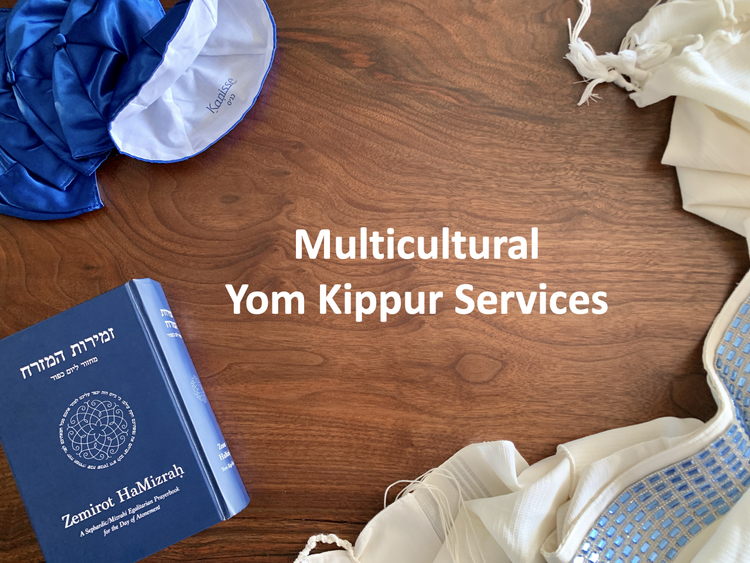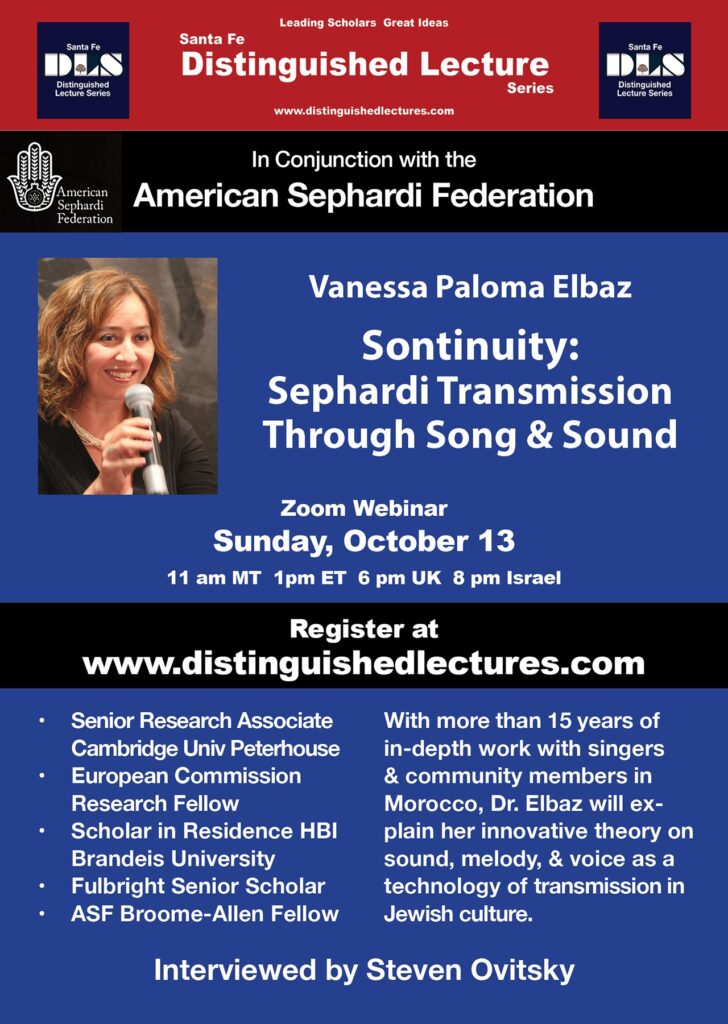Texting & Teshuba: Classic Sephardic Teachings on The Days of Awe

(“May you have a Good, Sweet, and Happy New Year!”)
From your friends at
The American Sephardi Federation
In honor of Yom Kippur, the ASF’s Sephardi World Weekly is pleased to offer the following “Letter from the Land of Israel”:
The days between Rosh HaShana and Yom Kippur are known as “the Days of Awe.” According to R’ Ben Zion Meir Hai Uziel (1880-1953), the first Sephardi Chief Rabbi of Israel, this period constitutes an integrated whole. On Rosh HaShana we envision an ideal reality in which the Jewish people are integrated with humanity at its best, whole-heartedly aspiring to a comprehensive and life-giving Divine purpose. Once that vision is realized, we even envision “evil dissipating like smoke.” Then, after dwelling on the vision of the ideal, on Yom Kippur we mediate upon the distance between the ideal and rock-bottom reality, including the ways in which we fall into and strengthen the forces of chaos and resentment.
Bringing our spiritual work down to earth, during the ten “days of awe” we have an opportunity to ask for forgiveness from those we have hurt. As the sages taught, “For sins between man and God, Yom Kippur atones; but for sins between man and his fellow, Yom Kippur does not atone until he appeases his fellow” (Yoma 87b). Yom Kippur alone, our fasting and prayers, cannot atone for sins we have committed against others until we first request forgiveness. But asking for forgiveness isn’t always so easy. Sometimes, shame gets in the way.
Hakham Eliezer Papo (1785–1828), the Rabbi of the Ottoman-Sephardi community of Silistra, Bulgaria, recognized and treated this problem in his great work of Jewish ethics, Pele Yoetz (“The Brilliant Counselor”). After noting the obligation to ask for forgiveness, “You must… ask forgiveness of anyone you insulted,” R’Papo turns to the related problem, “It is embarrassing… to ask forgiveness,” and then offers an elegant solution:
If you are too embarrassed to apologize in person, you may… write a letter. Since Jews are holy and compassionate, they grant forgiveness readily to those who request it.
While people no longer write letters in the same way as in R’Papo’s day, his advice remains relevant for those who communicate via email and WhatsApp. However, there are relationships, such as between parents and children, in which the request for forgiveness deserves to be personal. When it comes to parents and children, by and large, a WhatsApp request is not okay.
How should children approach their parents and ask for forgiveness? The great Iraqi sage, R’Yosef Haim (1835-1909), known by the title of his popular Halakhic work, The Ben Ish Hai, obligated children to visit their parents on Yom Kippur eve:
Every person should kiss his father and mother’s hand on Yom Kippur eve, during the late afternoon before going to synagogue, and request forgiveness. This is a great obligation for every person… For if the Talmudic sages obligated us to request forgiveness for sins committed against one’s fellow, all the more so one’s father and mother.
R’Yosef Haim’s command still rings true in the hearts of anyone who cherishes the vision of a warm home, but it also reflects the ways of a traditional community in which extended family life is central and people live within walking distance of their parents. Perhaps the obligation can still be performed today by “face-timing,” but the sad truth is that in our hyper-modern world, children, especially adult children, often fail to appreciate the honor due to their father and mother. At this point, R’Haim’s concluding sentence, written as Western modernity was beginning to penetrate late 19th century Baghdad and upend traditional ways of life, becomes especially pertinent:
If the child is a fool and doesn’t make the request, parents should still grant forgiveness, saying: I grant my child who sinned against me complete forgiveness.
Modern society is a blessing in many ways. Creative energies unleased by the rule of law and the free market have empowered more people than any time in history, while technological wonders have enabled billions to rise above their animal neediness and, as such, live more dignified lives. When it comes to family life, however, modernity has a way of making all of us a little foolish. R’Yosef Haim’s instruction shifts the responsibility, and the power, to the parents to begin the new year with a clean slate.
Once we have requested and granted forgiveness, once we have turned away from the path of resentment, we are ready to enter Yom Kippur, the holiest day of the year. While Yom Kippur is a holiday, the day on which we are granted a new beginning, it is also, according to the book of Vayikra/Leviticus, a “day of affliction.” We usually think of the 25-hour fast as the principal affliction, but the great Spanish Biblical commentator and government minister, Don Yitzhak Abarbanel (1437-1508), had a different perspective.
The command “You shall afflict your souls” appears twice in the Book of Leviticus, in verses 16:29 and 16:31. Why does the command appear twice? According to Abarbanel, the first verse refers to physical affliction such as fasting, while the second verse refers to spiritual-emotional affliction. On Yom Kippur we are granted an entire day to engage in introspection and to recognize the ways in which we fail to live up to our ideal selves. When done seriously, this can be a painful and tormenting but ultimately rewarding process, i.e., “affliction.” To borrow a phrase from the American writer Stanley Crouch, Yom Kippur is dedicated to “the bittersweet song of spiritual concerns”: the affliction is bitter, but the new beginning is sweet.
Crouch’s wonderful phrase, “the bittersweet song of spiritual concerns,” appears as part of “sermon” that is read with soulful, powerful, and sensitive musical accompaniment on Wynton Marsalis’ classic album, The Majesty of the Blues (1989). And American blues-idiom wisdom functions as a helpful parallel for understanding the deep, spiritual work of Yom Kippur, the Jewish variation on the universal human challenge of turning affliction into strength: begin with a rock-bottom recognition of our failings and difficult circumstances but rise above resentment by blessing all that has been, including the pain, and say “yes” to new life!
Best Wishes for Sweetness & Light!
Dulce lo vivas & Tizku l’Shanim Rabot,
The American Sephardi Federation

~~~~~~~
Rosh HaShanah Prayers in the Meir Tweig Synagogue, Baghdad, Mid-1990s

Rare video footage of the last Iraqi-Jewish community praying in the Meir Tweig, the only functioning synagogue by the mid-1990s in a city (Baghdad) that once boasted over 45. Watch the blowing of the shofar, singing of the “Hon Tahon” piyyut (at 11:16), and musaf prayer. “Hon Tahon” or its overall composition, “Bat Ahuba,” is a part of the liturgy of the majority of the Sephardic Diaspora.
~~~~~~~
Ya Sh’ma Ev’yonecha (“God, Hear Your Poor Ones”)

(Photo courtesy of Youtube)
Watch and listen to Ofir ben Shitrit and the Israeli Andalusian Orchestra perform Yehuda HaLevi’s piyyut, Ya Sh’ma Ev’yonecha (“God, Hear Your Poor Ones”), which asks for acceptance of prayers as sacrificial offerings and absolution from all sins. Many Sephardi communities sing this piyyut amongst the slichot (penitential poems) performed in the forty-day period before Yom Kippur. May HaShem see the tears and hear the prayers of Israel!
~~~~~~~
Upcoming Events or Opportunities
Our friends at Kanisse: A Modern Sephardic + Mizrahi Community present:
Multicultural High Holiday Services
Dates and Locations
Yom Kippur Eve
Friday, 11 October
6:03PM Candle Lighting / Fast Begins
6:30PM Evening Prayers – Qabbalat Shabbat and ‘Arvit
873 Broadway @ 18 Street, Suite #410, New York, NY 10003
Yom Kippur Day
Saturday, 12 October
9:30AM Morning Prayers – Shaḥarit and Musaf
4:45PM Evening prayers – Minḥah and Ne’ilah
873 Broadway @ 18 Street, Suite #301, New York, NY 10003
Sign-up Now!
(Tickets: $0-$1,001)

“Kanisse will be hosting a special Rosh Hashanah Tashlikh Service (“casting-off” of sins) on the Hudson. A short program that will begin with quintessential holiday piyyutim followed by traditional and alternative Tashlikh readings along the river’s edge..
This year’s Yom Kippur Services will be led by our stellar returning cantorial team: Galeet Dardashti, who will be leading us in the Persian tradition, and Abe Safdie, who will be leading us in the Syrian tradition. Services will also be livestreamed for those joining us at a distance. At the conclusion of Yom Kippur, a break-fast of Middle Eastern delicacies will be served.”
*Please note: We are sharing this announcement as a public service. This is not an ASF program.
~~~~~~~
Santa Fe Distinguished Lecture Series and the American Sephardi Federation present:
Sontinuity: Sephardi Transmission Through Song & Sound
With more than 15 years of in-depth work in Morocco with singers & community members, Dr. Elbaz will explain her innovative theory on sound, melody, & voice as a technology of transmission of Jewish culture. An interview with Steven Ovitsky, immediate past Executive Director of the Santa Fe Chamber Music Festival

Sunday, 13 October 1:00PM ET
Sign-up Now!
Registration: Free (RSVP required)
Dr. Vanessa Paloma Duncan-Elbaz is an ASF Broome & Allen Fellow, Research Associate at Cambridge University, and award-winning scholar and singer.